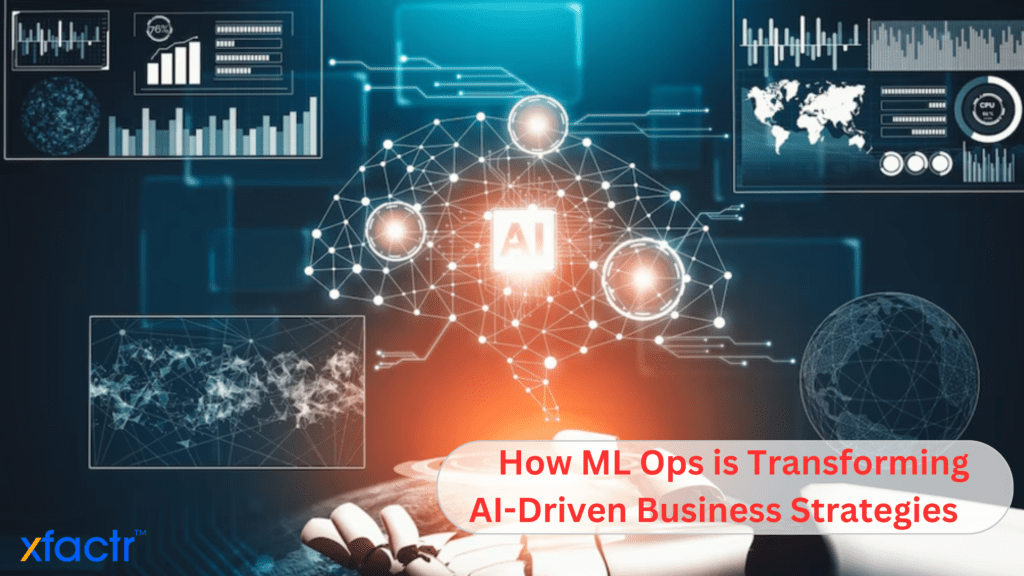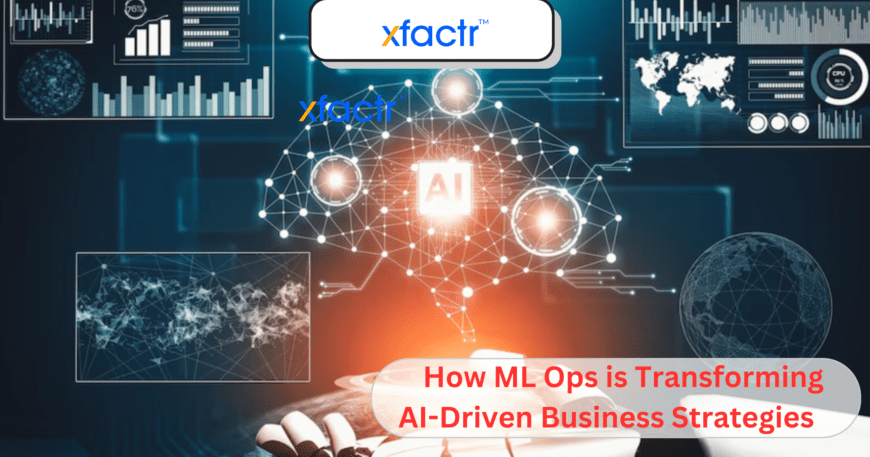Artificial intelligence (AI) has become a cornerstone of modern business innovation, enabling companies to extract insights from data, automate processes, and deliver personalized customer experiences. However, as the adoption of AI accelerates, organizations face significant challenges in deploying, managing, and maintaining machine learning (ML) models at scale. This is where ML Ops (Machine Learning Operations) emerges as a transformative solution, bridging the gap between data science and production environments.
In this blog, we’ll explore how ML Ops is reshaping AI-driven business strategies and why it is critical for organizations aiming to maximize the value of their AI investments.
The Challenge of Scaling AI
AI and machine learning hold immense potential, but unlocking this potential isn’t straightforward. Common challenges include:
Model Deployment: Moving a model from a development environment to production can be complex and time-consuming.
Monitoring and Maintenance: ML models can degrade over time due to data drift, requiring constant monitoring and retraining.
Collaboration Silos: Lack of collaboration between data scientists, developers, and IT operations teams can slow down AI project delivery.
Reproducibility: Ensuring consistent results across environments and iterations is often a significant hurdle.
ML Ops addresses these challenges by providing a structured and automated approach to managing the machine learning lifecycle.
What is ML Ops?
ML Ops is a set of practices, tools, and frameworks designed to streamline and operationalize machine learning workflows. It borrows principles from DevOps, applying them to the unique requirements of ML models, ensuring that AI solutions are scalable, reliable, and efficient.
How ML Ops is Transforming AI-Driven Business Strategies
1. Faster Time-to-Market
With ML Ops, businesses can automate repetitive tasks like data preprocessing, model training, and deployment. This reduces the time it takes to develop and launch AI-driven products, allowing organizations to respond swiftly to market opportunities.
2. Enhanced Model Performance
Continuous monitoring and automated feedback loops enable businesses to detect issues such as data drift or model performance degradation in real-time. ML Ops ensures that models are consistently retrained and updated, maintaining optimal performance.
3. Scalability at Its Core
ML Ops provides the infrastructure to scale machine learning pipelines, making it easier for businesses to handle large datasets and deploy models across multiple environments. This scalability is crucial for enterprises with global operations.
4. Improved Collaboration
ML Ops fosters collaboration between cross-functional teams, including data scientists, developers, and operations staff. By providing a unified platform and standardized processes, it eliminates silos and accelerates innovation.
5. Cost Optimization
Efficient resource allocation and automation reduce the cost of managing ML workflows. ML Ops ensures that organizations invest resources only where they are needed, optimizing both infrastructure and operational expenses.
6. Trust and Compliance
For industries with stringent regulatory requirements, ML Ops offers tools for tracking model versions, documenting decisions, and ensuring transparency. This builds trust in AI solutions and helps businesses stay compliant with industry standards.
Real-World Applications of ML Ops
Retail: Personalizing customer experiences by deploying recommendation engines and updating them based on real-time shopping trends.
Healthcare: Ensuring the accuracy of predictive models for disease diagnosis by retraining them on new patient data.
Finance: Monitoring fraud detection models to adapt to evolving fraud patterns and ensure regulatory compliance.
Manufacturing: Optimizing supply chains with AI-powered demand forecasting models that are regularly updated to reflect market dynamics.
Key Tools and Technologies in ML Ops
Version Control: Git, DVC
Orchestration: Kubernetes, Apache Airflow
Monitoring: Prometheus, Grafana
Model Management: MLflow, TensorFlow Extended (TFX)
Future of ML Ops
As AI adoption continues to grow, ML Ops will play an increasingly critical role in enabling businesses to derive sustained value from their machine learning initiatives. Emerging trends like automated ML (AutoML), explainable AI (XAI), and edge computing will further enhance the capabilities of ML Ops frameworks, making them indispensable for organizations striving to stay ahead in the AI race.
ML Ops is more than just a buzzword; it is a game-changer for organizations leveraging AI to drive business strategies. By enabling seamless integration of ML models into production, ensuring continuous improvement, and fostering collaboration, ML Ops empowers businesses to harness the full potential of AI. For organizations looking to stay competitive, adopting ML Ops isn’t just an option—it’s a necessity.



